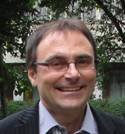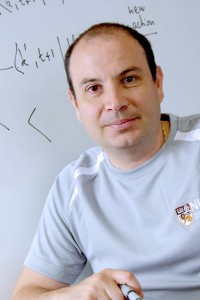Abstract:
The ubiquitous access to the Web and, more generally to digital contents has dramatically changed the “digital experience” everyone daily lives. However, the diversity of contexts (technical contexts, social contexts, personal contexts), the diversity of users, the diversity of digital contents have definitely made mandatory the (or at least, some) personalization of the users’ experience.
The notion of “Universal Multimedia Experience (UME)” has been coined to represent this attempt to put the user at the center of the content delivery process. The key idea that underpins this concept is the notion of adaptation: adaptation of the delivery process to the network conditions, adaptation of the type of content to the user’s preferences and profile, adaptation of the content itself to the user’s terminal capabilities and user’s activity, etc.
This talk will address some of the key issues related to multimedia content adaptation and multimedia quality of experience.
First, we will focus on the modeling of the user’s context. Indeed, a basic condition to adaptation is the capture (or the inference) and the representation of the user’s “context” i.e., the technical conditions (network, terminal), the user’s activity, the user’s intention, the user’s profile and preferences.
Then, the core of the talk will be dedicated to the specific issues of video content adaptation. By their isochronous nature; by the richness and complexity of the information they carry; by the multiplicity of their stakeholders (end user, creator, video broadcaster), video contents raise specific and complex issues related to both semantic, perceptual and even legal constraints and conflicts.
To address these issues, we will introduce the concept of Utility Function, which aims at integrating in one multi-dimensional optimization space, semantic constraints, user’s context characteristics and perceptual considerations.
As a side effect of this modeling of the video adaptation process, we will analyze how the enforcement of access control rules on video contents can be formalized as a problem of content adaptation.
Finally, we will investigate some still open issues related to video delivery optimization in P2P and delay-tolerant networks, complex multi-dimensional semantic constraints, visual aesthetics, privacy and security.
This talk will be illustrated by research works developed in the International Doctoral College and Federative Laboratory “Multimedia Distributed and Pervasive Secure Systems” (MDPS) which comprises researchers from the National Institute of Applied Sciences (INSA) of Lyon, France (Pr. L. Brunie’s team), the University of Passau (Pr. H. Kosch’s team), Germany and the University of Milan, Italy (Pr. E. Damiani’s team).
CV:
Lionel Brunie is full professor at the National Institute of Applied Sciences (INSA) of Lyon, France, where he leads the LIRIS DRIM research team.
With 10 permanent researchers and 15+ PhD students, the DRIM team is specialized in distributed data management, multimedia information systems, information retrieval, and sec urity/privacy.
urity/privacy.
In 2007, along with Pr Harald Kosch (University of Passau, Germany), Lionel Brunie created the French-German doctoral college in “Multimedia Distributed and Pervasive Secure Systems (MDPS)”. MDPS was extended in 2009 to the University of Milan, Italy (Pr. Ernesto Damiani’s team). MDPS proposes both a framework for international co-supervised PhDs and a federative research institute that develops a joint research agenda.
Lionel Brunie’s main topics of interest include: data management in large scale and pervasive systems, collaborative multimedia information systems, security and privacy, e-health applications.



 Abstract: Automatic visual information retrieval methods are typically easy to use but have well-known issues, such as the semantic gap or the usability gap. Pure navigation-based methods on the other hand are usually too tedious to use, especially for large multimedia data archives. In this talk I will discuss visual content browsing, a content-based exploratory search approach that integrates methods of automatic retrieval and interactive search. I will explain how visual content browsing can help us to overcome the shortcomings of automatic image and video retrieval. Special emphasis will be put on the interactive part, although content analysis methods will be introduced as well. Furthermore, I will talk about the evaluation of visual content browsing tools, mention related issues and introduce the Video Browser Showdown, which is an annual competition to evaluate such tools. The talk will be concluded with an outlook of future opportunities and challenges of visual content browsing.
Abstract: Automatic visual information retrieval methods are typically easy to use but have well-known issues, such as the semantic gap or the usability gap. Pure navigation-based methods on the other hand are usually too tedious to use, especially for large multimedia data archives. In this talk I will discuss visual content browsing, a content-based exploratory search approach that integrates methods of automatic retrieval and interactive search. I will explain how visual content browsing can help us to overcome the shortcomings of automatic image and video retrieval. Special emphasis will be put on the interactive part, although content analysis methods will be introduced as well. Furthermore, I will talk about the evaluation of visual content browsing tools, mention related issues and introduce the Video Browser Showdown, which is an annual competition to evaluate such tools. The talk will be concluded with an outlook of future opportunities and challenges of visual content browsing.